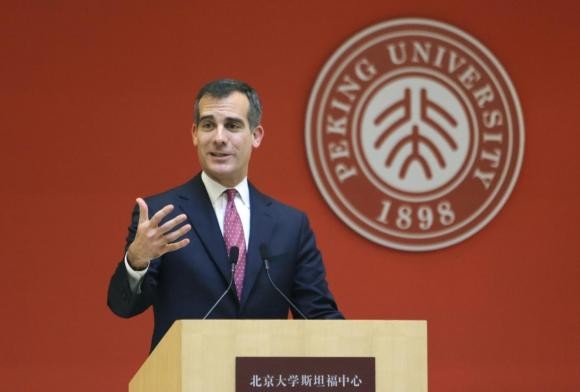Like too many of the world's affairs, China's education system has received negative attention from those who have not taken the full body of facts into account, or who have not properly understood the broader context that is essential to comprehend in any analysis of the system.
While the Internet has empowered scores of consumers in a range of areas, including the ability to express their views on subjects of interest, such an accessible platform has also facilitated the more rapid dissemination of misinformation.
Fortunately, legitimate online sources continue to keep their necks stuck above the vocal crowd, and the Global Times stepped in on Monday to remind readers that even a prestigious university like Peking University, also known as Beida, needs time to orient itself in accordance with the constantly shifting playing field. Peking University specifically came into focus, as the university's 27th president since 1898 was officially appointed on Sunday.
The new president Lin Jianhua, who was formerly in the presidential role at Zhejiang University, was forthright about his perception of Beida in his introductory speech, saying:
"Beida has never been simply a university, she is a totem in people's minds, bearing the future and hope of the nation."
The negativity that has been directed toward the university has been in regard to two perceived issues: comparisons with Western tertiary institutions and assessing Beida in relation to early 20th-century Republic of China universities.
As the Global Times writer acknowledged, top-tier universities in China remain behind their Western educational counterparts in terms of competitiveness, scientific research and social sciences. But using Chinese examples from a century ago is akin to analyzing apples with oranges, as both university and student numbers were far lower.
Alibaba Group founder Jack Ma said to the media that the "new normal" economy of China indicated the prioritization of quality over quantity under President Xi Jinping. The ongoing development and maturation process within top institutions like Peking University needs to be viewed in the same way, while unnecessary criticisms are entirely unnecessary.



























